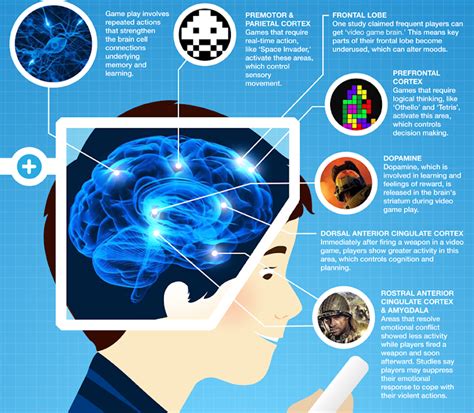The Impact of Gaming Technology on Society

Explore the evolution of gaming tech, rise of e-sports, social interaction, mental health challenges, and educational impact in this insightful blog post.Gaming technology has come a long way since the days of Pong and Tetris. With constant advancements in graphics, gameplay, and virtual reality, the evolution of gaming technology has certainly left a mark on society. From providing increased opportunities for social interaction to the rise of e-sports and gaming competitions, the impact of gaming technology on our daily lives is undeniable. However, with these advancements also come challenges, such as the rise of gaming addiction and its potential impact on mental health. Yet, the influence of gaming technology on education and learning can also not be overlooked. In this blog post, we will delve into the various facets of gaming technology and its impact on society, exploring its evolution, its impact on social interaction, the rise of e-sports, as well as the challenges and opportunities it presents in terms of addiction, mental health, education, and learning.
Evolution of gaming technology
Over the past few decades, the evolution of gaming technology has been nothing short of remarkable. From the simple, pixelated graphics of the 1980s to the stunning, lifelike visuals of today, it’s clear that gaming technology has come a long way. The introduction of 3D graphics, virtual reality, and augmented reality has revolutionized the gaming experience, making it more immersive and engaging than ever before.
Furthermore, advancements in hardware and software have allowed for more complex and realistic gameplay. From faster processors and higher resolution displays to sophisticated AI and physics engines, gaming technology continues to push the boundaries of what’s possible. This evolution has not only transformed the gaming industry but has also had a significant impact on society as a whole.
With the rise of mobile gaming, cloud gaming, and streaming platforms, gaming has become more accessible than ever, reaching a broader audience and bringing people from all walks of life together. As gaming technology continues to evolve, we can expect even more exciting developments in the future, further blurring the lines between reality and virtual worlds.
Increased opportunities for social interaction
The evolution of gaming technology has not only transformed the way we play games, but also the way we interact with others. With the rise of online multiplayer games and virtual reality platforms, gamers now have increased opportunities for social interaction that were previously limited to in-person interactions. Gamers can now connect with others from around the world, form communities, and build relationships through their shared love of gaming.
Online multiplayer games like Fortnite, Call of Duty, and World of Warcraft have become virtual meeting grounds where players can team up, compete against each other, and communicate through voice chat and messaging systems. These games provide a platform for players to socialize, collaborate, and form lasting friendships, breaking down geographical barriers and bringing people together from different cultures and backgrounds.
Moreover, the advent of virtual reality technology has taken social interaction in gaming to a whole new level. VR platforms like Oculus and PlayStation VR allow players to immerse themselves in virtual worlds and interact with others in a way that feels incredibly real. Whether it’s exploring fantastical landscapes together, attending virtual concerts and events, or simply hanging out and chatting in a virtual environment, VR has opened up a new frontier for socializing in gaming.
Rise of e-sports and gaming competitions
The rise of e-sports and gaming competitions has had a significant impact on society in recent years. With the advancement of technology and the increasing popularity of video games, competitive gaming has become a global phenomenon, attracting millions of players and spectators from around the world.
One of the most notable effects of this trend is the increased opportunities for social interaction and community building. Gaming competitions bring together people of all ages and backgrounds, providing a platform for them to connect and collaborate in a shared passion. This sense of camaraderie and belonging has not only created new friendships, but has also fostered a sense of belonging and identity among gamers.
Furthermore, the rise of e-sports has transformed the traditional perception of gaming as a solitary activity into a respected and mainstream form of entertainment. Major tournaments and events now draw massive audiences and offer substantial prize pools, attracting top talent and professional players who train rigorously to compete at the highest level. This has not only elevated the status of e-sports as a legitimate sporting industry, but has also opened up new educational and career opportunities for aspiring gamers.
Challenges of gaming addiction and mental health
Gaming addiction and its impact on mental health have become significant concerns in modern society. The rise of online gaming and the accessibility of gaming technology have led to increased cases of addiction among individuals, particularly young people. The gratification and escape that gaming provides can lead to excessive use, leading to negative consequences on mental health.
Many individuals who struggle with gaming addiction may experience symptoms similar to those of substance abuse, such as withdrawal, tolerance, and loss of interest in other activities. This can have a detrimental effect on their overall well-being, including their social, emotional, and psychological health. In severe cases, gaming addiction can lead to isolation, depression, anxiety, and even suicidal thoughts.
Addressing the challenges of gaming addiction and its impact on mental health requires a multi-faceted approach that involves awareness, education, and support. Parents, educators, and healthcare professionals play a key role in recognizing the signs of gaming addiction and providing the necessary resources and interventions to help individuals overcome these challenges and lead a healthier, more balanced life.
Influence of gaming technology on education and learning
Gaming technology has significantly impacted education and learning in recent years. With the continuous advancements in technology, educational institutions have incorporated various gaming elements to enhance the learning experience for students. Virtual reality (VR) and augmented reality (AR) have revolutionized the way students interact with educational content, providing immersive experiences that make learning more engaging and interactive.
The use of gamification in learning has also gained popularity, as educators leverage game design elements to create a more dynamic and motivating environment for students to learn. This approach has been proven to improve student engagement, critical thinking, and problem-solving skills. Additionally, educational games and simulations have been developed to help students learn complex subjects in a more interactive and enjoyable manner.
Furthermore, gaming technology has opened up new opportunities for distance learning and personalized learning experiences. With the ability to access educational resources and courses online, students can tailor their learning based on their individual pace and preferences. This flexibility has transformed the traditional classroom setting and has made education more accessible to a wider audience, breaking down geographical barriers and providing equal learning opportunities for all.





